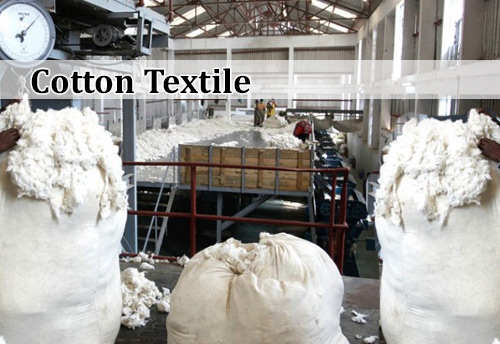Indian cotton textiles suffering serious disadvantages due to tariff issues in major markets: CITI
Updated: Feb 11, 2019 09:52:09am

Indian cotton textiles suffering serious disadvantages due to tariff issues in major markets: CITI
New Delhi, Feb 11 (KNN) India’s cotton yarn and fabric exports are struggling because of the duty disadvantage faced by the Indian exporters in major markets, said Confederation of Indian Textile Industry (CITI).
“There has been continuous decline in exports of cotton yarn and fabric during 2013-14 to 2017-18”, said Sanjay Kumar Jain, Chairman of CITI.
India’s exports of cotton yarn declined by 25% from US$ 4,570 in past five years, while fabric exports declined by 7% in the same period, according to CITI.
Chairman CITI said that falling of Indian cotton yarn and fabric exports is impacting the whole value chain from farmers, spinners to weavers/knitters as there is considerable exportable surplus in country but we are not able to be overcome the tariff disadvantage despite being competitive in both spinning and weaving.
He pointed out that Indian spinning mills performed well in exports during 2013-14 when the cotton yarn was covered under schemes such as 2% incremental export incentive, 2% interest subvention and 3% focus market incentive and the sector could penetrate into alternate markets other than China.
However suddenly all incentives were withdrawn leading the spinning mills high and dry, he added.
He further highlighted that China which is the largest importer of cotton yarn has shifted from India to Vietnam/Indonesia as they have duty free access while Indian yarn carries 3.5% import duty.
As per the apex chamber of Indian textiles, India’s cotton yarn exports to China fell by 48% from 2013 to 2017, while exports from Vietnam and Indonesia increased at a remarkable rate of 129% and 55% respectively in the same period.
Besides, CITI analyzes that India’s raw cotton is going to various markets at zero duty. Exporting of raw cotton bales instead of value addition by converting to yarn and fabric is leading to loss of valuable foreign exchange, employment and better remuneration to farmers.
Markets like EU, China, Turkey and Vietnam impose an import duty in the range of 8-12% on Indian fabric while duty free access is given to countries such as Pakistan, Cambodia, Bangladesh and Cambodia, Chairman pointed.











